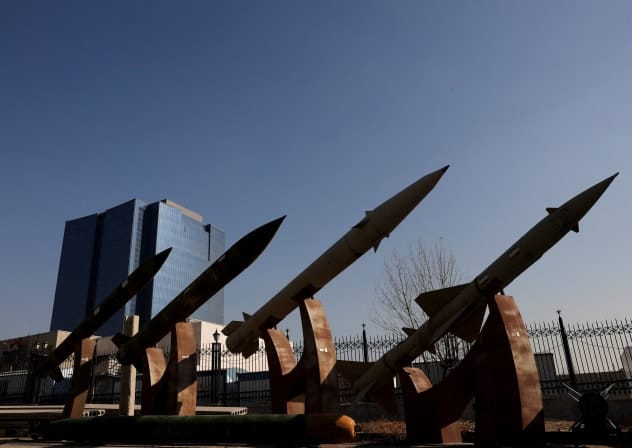Missiles, routine, silence: Israel adjusts as war reaches heartland - analysis
A country was brought silent by war with Iran as first responders and the IDF Home Front Command deal with the impacts from Iran’s arsenal.

A country was brought silent by war with Iran as first responders and the IDF Home Front Command deal with the impacts from Iran’s arsenal.




Araghchi also claims to have spoken with the Omani and Qatari foreign ministers on the subject of recent attacks by Iranian forces on foreign targets.

Marom argued that the strike reshaped regional alignments and revealed weaknesses in Iran’s threat posture.

Israel was disappointed that after it brought Tehran down from as many as 3,000 missiles in June to around 1,300, in only eight months, Iran was able to rebuild and return to the 2,500 missile level.

In a phone call interview, Trump told The Atlantic that he agreed to speak with Iranian representatives, but declined to specify whether a conversation would take place on Sunday or Monday.

he tension on this very familiar journey, one I make a few times a month, brought to mind a line from a book: “Up mountain roads/‘round hairpin curves/with eagle eyes/and steely nerves.”

In a separate interview with Fox News, Trump stated that 48 Iranian leaders had been "wiped out in one shot."

El Zahra Centre in Melbourne announced a Majlis [gathering] in commemoration of Khamenei, saying "We offer our condolences and congratulations to the presence of Imam Mahdi."

"In accordance with Article 111 of the Constitution, the Temporary Leadership Council has begun its work today," Pezeshkian said in the recorded statement.

The American and Israeli strikes “should have even happened earlier, last month, after what the regime did to the protesters,” a member of the Iranian diaspora asserted.

CENTCOM also cited US President Donald Trump's call for "members of Iran's armed forces, IRGC, and police to 'lay down your weapons,'" and to "Abandon ship!"
